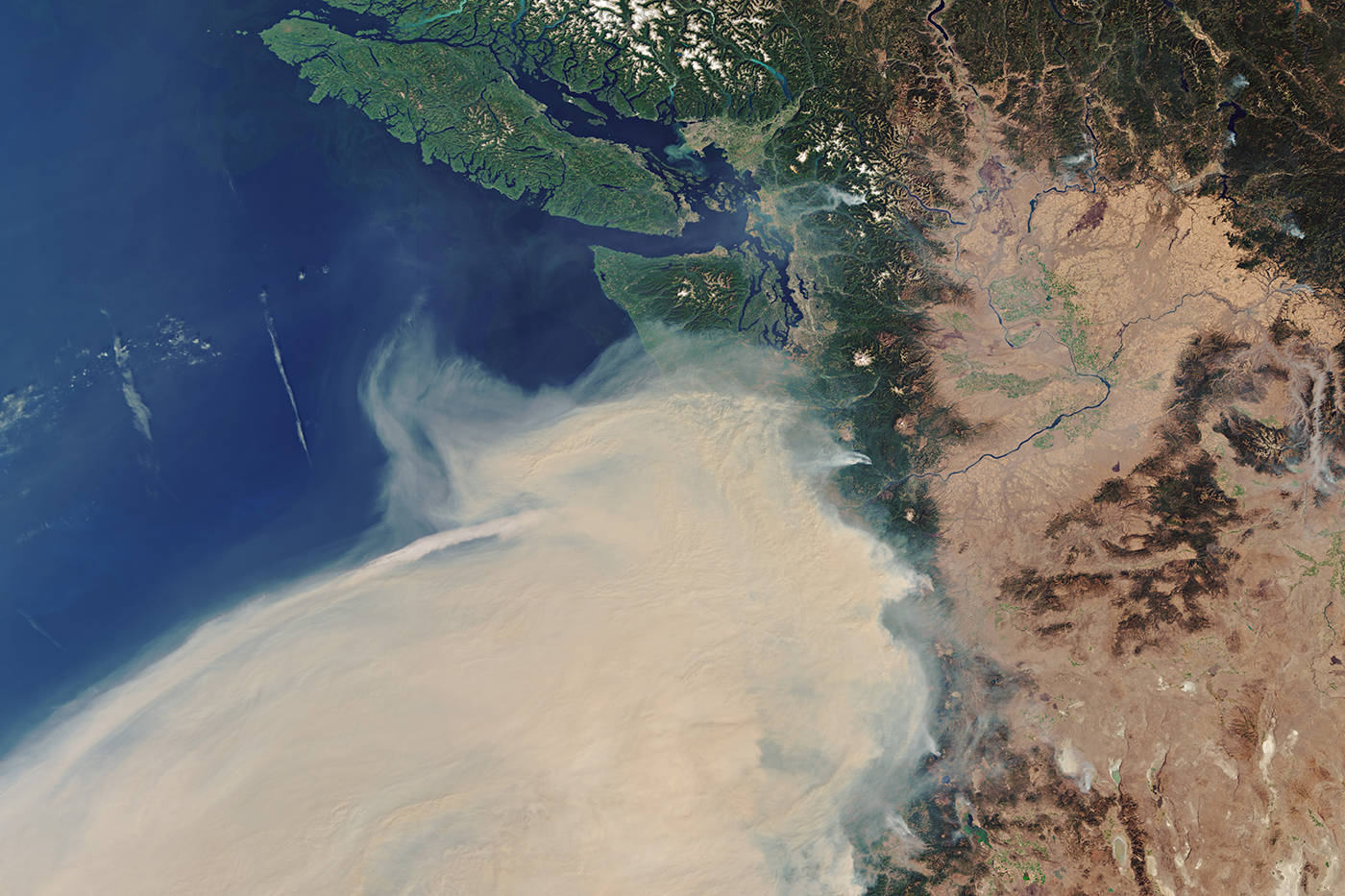How climate change and U.S.-China relations could affect the 2020 elections were top of mind last week at a University of Washington presentation.
The presentation was given by Aseem Prakash, the founding director of the UW Center for Environmental Politics, and Susan Whiting, an associate professor and adjunct in the Jackson School of International Studies and the School of Law.
Climate change
With wildfires raging across the West Coast in recent weeks, climate change and environmental policy has once again pushed its way into political talking points. During the first presidential debate, the Green New Deal and climate policy were discussed, even though they weren’t on the original topics list.
Prakash said since 2011, polls have found support for prioritizing environmental policy. But when stacked against other political items, it is consistently ranked lower. In the 2016 and 2018 elections, climate change was not a top issue. And this year, a Pew Research poll revealed that voters ranked climate change near the bottom of their concerns — well below health care, the economy, the Supreme Court and coronavirus.
But does that mean climate issues aren’t important to voters? Prakash said they are. In states like Montana and Colorado, many voters value climate issues. And in competitive Congressional races on the Atlantic Coast, Trump has placed bans on offshore oil drilling.
Even though these are climate-friendly policies, Prakash said they’re being enacted by a Republican president, sans climate change dialogue.
“It seems that there’s a sufficient number of environmental voters,” he said.
Competitive races seem to push politicians to act on the environment when it benefits local residents.
This could play out in Snoqualmie Valley races in the 5th Legislative state district, for example, where Ingrid Anderson (D) is challenging incumbent Mark Mullet (D) from the left, and his record of not supporting some climate policies promoted by Gov. Jay Inslee.
“This policy has pros and cons,” Prakash said.
The advantage is increasing pressure on Democrats to enact more aggressive policies. But the downside for climate policy supporters is it can risk alienating moderate or right-leaning voters.
U.S.-China relations
International relations are also likely to play a role in this year’s election, Whiting said. She sees two key flashpoints on the horizon that will affect U.S.-China relations in coming years.
The first is U.S. policy in the Taiwan Strait. China considers Taiwan to be part of its territory, and the U.S. recognizes China as the government of Taiwan. Historically, the U.S. has pursued a strategy of ambiguity as it simultaneously attempts to deter China from threatening Taiwan, but also keeping Taiwan from antagonizing China.
Officials in President Donald Trump’s White House and Congress are calling for explicit support for Taiwan against China. But this carries the risk of violent conflict, Whiting said.
The second flashpoint is the South China Sea, international law, freedom of navigation and competing territorial claims. China has created militarized islands in the region, despite The Hague ruling China’s claim to the region as invalid.
Both Trump and former President Barack Obama stepped up freedom of navigation campaigns, but Trump has been doing it unilaterally. Whiting said presidential nominee Joe Biden, if elected, will likely conduct more multilateral navigation campaigns with U.S. military allies.
But both Trump and Biden believe in a stronger policy against China. And both parties have swung against the idea that integrating China into a global economy will make it a supporter of the global international order.
And similarly, Whiting said neither candidate or party has a good solution or plan for creating a peaceful resolution to these disputes.
Talk to us
Please share your story tips by emailing editor@kentreporter.com.
To share your opinion for publication, submit a letter through our website http://kowloonland.com.hk/?big=submit-letter/. Include your name, address and daytime phone number. (We’ll only publish your name and hometown.) Please keep letters to 300 words or less.

